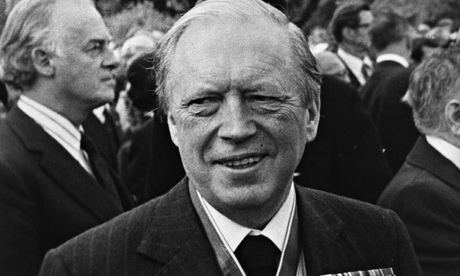The Guardian | Mark Lawson | 14 July 2014
The second season of Channel 4’s controversial thriller ups the ante by weaving a number of real-life terrorist assassinations into its plot
In a development that the shows’ target audience are unlikely to accept as accidental, conspiracy dramas are cropping up across the schedules at the moment. With Hugo Blick’s The Honourable Woman (Thursdays, BBC2) established as the first non-footballing TV sensation of the summer, Monday sees the return of Channel 4’s political paranoia drama Utopia (10pm, Channel 4).
Written by Dennis Kelly, whose impressively varied CV includes the stage musical Matilda and the BBC3 comedy Pulling, last year’s first series of Utopia received an excited response from social networks, but disapproval from sections of traditional media. There were alarmed articles about scenes of extreme violence in Kelly’s portrayal of The Network, a group of provocateurs and assassins – operating in a shadowy area between the state and private enterprise – who seem to be orchestrating world disorder.
It’s always intriguing to see how a second season responds to a controversy over the first. If this were a BBC show, The Network would probably have turned into an underworld collective of vegetarian pacifists, but Channel 4 seems to have kept its nerve. Indeed, two sequences featuring the bloody killing of pet rabbits (although the most brutal moments are implied rather than dramatised) almost seem calculated to antagonise certain news desks and clean-screen campaigners.

Conservative politician Airey Neave, who was killed by a car bomb in 1979 Photograph: Keystone/Getty Images
And another aspect of Utopia’s second run is also notably bold. The first episode of its return is an extended flashback from the opening series, which took place in the present day, to 1974-79. New actors (Aine Garvey and Rose Leslie) play earlier versions of Jessica, a fugitive from the Network, and MI5 agent Milner, who were portrayed in the 2013 episodes (and are again in the later 2014 parts) by Fiona O’Shaughnessy and Geraldine James.
This is a clever application by Kelly of the rule of long-running drama that a new series should somehow be the same but different. But the risk-taking comes from the fact that the revelation of the back-story behind the conspiracies involving the “Utopia manuscript”, “Rabbit Man” and “Janus” proves to involve a number of actual assassinations from the 70s: Italian prime minister Aldo Moro; the British ambassador to the Netherlands, Richard Sykes; and Margaret Thatcher’s chief of staff, Airey Neave, who was blown up at the House of Commons by a bomb placed in his car and is regarded as a sort of martyr by the Thatcherite and Unionist wings of the Conservative party.
News reports of these actual murders is cut into the drama – which would provide one ethical discussion for media studies seminars – but, even more debatedly, there is a scene in which Neave, played by Tim McInnerny as a blustering drunk, has dinner with fictional characters as part of a plotline in which his and Sykes’ killings are attributed to a conspiracy involving the British and American security services. This characterisation and narrative inflamed the Mail on Sunday, in a report that included calls from Neave’s living relatives for Utopia to be withdrawn from broadcast.
Although the death of Sykes has commonly been blamed on the IRA – and the INLA publicly claimed responsibility for killing Neave – alternative explanations are not entirely the invention of Dennis Kelly. Some counter-historians have long suggested that Neave (and possibly also Sykes) were killed not by Republican para-militaries but by various combinations of the CIA, MI5 and MI6. The late Enoch Powell was a believer in this scenario, although Powell was also convinced that Shakespeare didn’t write Shakespeare’s plays, which is rarely a guarantee of credibility.
Three and a half decades after the events, a cult Channel 4 drama is unlikely to have much impact on the grief felt by the living friends and relatives of Neave and Sykes and, if it ever became forbidden to speculate widely about the deaths of public figures, there would be large Kennedy and Diana-shaped holes in the British TV schedules. Even so, Neave and Sykes are less public property than the others and the sudden intrusion of these real-death figures into Kelly’s enjoyable conspiracy drama gave me a queasy feeling.
Possibly in anticipation of another fuss over Utopia, Channel 4 has paired the premiere with another much more Conservative- (and conservative-) friendly project: the start of the eight-part observational documentary series Royal Marine Commando School (Monday, 9pm).
Although not without its own potential contentiousness, in scenes of the verbal and physical brutality to which new recruits can be subjected, this series in general seems aimed at almost the opposite of the audience likely to enjoy Utopia. So the suspicion arises that this contrasting double-bill, possibly reflecting the BBC past of current C4 boss Jay Hunt, is a rare example on this network of the BBC practice known as “sandbagging”, by which shows likely to upset one set of political followers are scheduled close to one likely to appease them.
But I may have been watching too many conspiracy thrillers.


